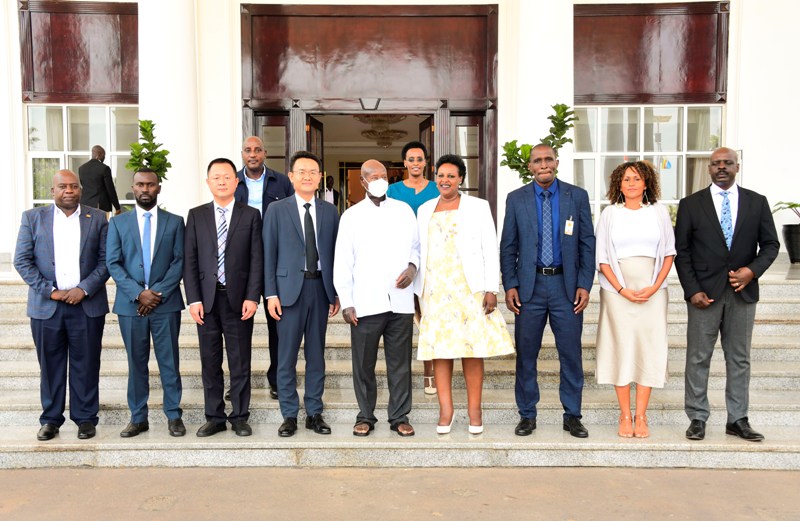Court moves to tackle controversial cyber law as journalists, activists join forces
Uganda’s Constitutional Court has taken a decisive step toward hearing a landmark challenge to the controversial Computer Misuse (Amendment) Act of 2022 by consolidating two major petitions brought by media and civil society groups.

Uganda’s Constitutional Court has taken a decisive step toward hearing a landmark challenge to the controversial Computer Misuse (Amendment) Act of 2022 by consolidating two major petitions brought by media and civil society groups.
The Court, sitting in Kampala, agreed on Tuesday to merge Petition 34 of 2022, filed by Alternative Digitalk and 12 others, and Petition 37 of 2022, led by the Human Rights Network for Journalists (HRNJ) and 13 others, both of which contest the constitutionality of the amended digital law that critics say is designed to muzzle free speech and criminalize dissent.
A five-judge panel led by Lady Justice Irene Mulyagonja, with Justices Ketrah Kitarisibwa, Mike Musisi, Jesse Byaruhanga Rugyema, and Esta Nambayo, ruled that the petitions carry overlapping concerns—mainly with regard to provisions that restrict online communication—and consolidation was in the interest of judicial efficiency.
“There was no objection from the Attorney General, and the issues raised in both petitions are substantially similar,” said the panel, allowing the consolidation following a formal application by lawyer Peter Arinaitwe on behalf of Alternative Digitalk.
The HRNJ case was initially called first, and lawyer Eron Kiiza, appearing as lead counsel, informed the court of the prior consensus among petitioners to merge both legal actions for a streamlined hearing. The court agreed.
The consolidation now paves the way for substantive proceedings in a case that many observers say could set a precedent on the limits of digital freedom in Uganda.
The court directed that submissions on the amended law editions be filed by May 12, 2025, and rejoinders by the petitioners be filed by May 20, 2025, after which judgment will be delivered on notice.
At the heart of the consolidated case is the Computer Misuse (Amendment) Act, 2022, passed by Parliament on September 8th, 2022, and signed into law by President Yoweri Museveni on October 13th, 2022. The Private Member’s Bill, tabled by Kampala Central MP Muhammad Nsereko, introduced broad new offenses targeting online communications.
The law criminalizes the sending of “hateful, misleading, or malicious” information; the use of unsolicited content; and the sharing of someone’s image without consent. Rights groups say these provisions are vague, prone to abuse, and could lead to the silencing of critical voices, especially journalists and government critics.
While petitioners argue the law offends core constitutional guarantees, including freedom of expression, the Attorney General has asked the Court to dismiss the petition, claiming it lacks merit.
But with the stage now set for a full hearing, digital rights defenders are closely watching how the court will rule on what many are calling Uganda’s “cyber gag law.”







